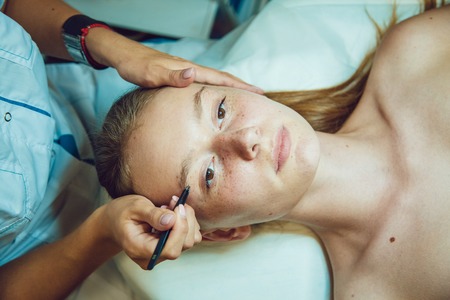Urban Living and Skin: The Contemporary British Experience
There’s something undeniably exhilarating about living in a vibrant UK city, whether it’s the lively energy of London, the creative pulse of Manchester, or the historic charm of Edinburgh. Yet, as any urban dweller will tell you, city life comes with its own set of challenges—especially when it comes to skin health. Our daily routines are shaped by packed commutes on the tube, bustling high streets, and long hours spent under artificial lighting. The relentless pace means we’re constantly on the go, grabbing a quick Pret coffee before dashing to meetings, juggling work deadlines with social commitments, and squeezing in evening gym sessions to maintain some semblance of balance. In this whirlwind of urban activity, it’s easy to overlook the toll these habits take on our skin. British city dwellers often face unique pressures: unpredictable weather that flips from rain to shine within an hour, air thick with pollution from buses and black cabs, and the ever-present stress of modern life. These factors combine to create a perfect storm for acne-prone skin, leaving many of us searching for effective solutions that fit seamlessly into our fast-paced routines.
City Air: Pollution and Its Toll on Skin Health
Living in the heart of bustling UK cities such as London and Manchester has its own unique charm—vibrant culture, endless food options, and a truly cosmopolitan atmosphere. But for those of us who call these urban landscapes home, there’s an undeniable downside that we feel every time we look in the mirror: the impact of city air pollution on our skin. The truth is, pollution isn’t just something you notice on your coat after a long day on the Tube; it’s also quietly waging war against your complexion.
The Hidden Effects of Urban Air
Major UK cities are often shrouded in a cocktail of pollutants—think nitrogen dioxide from heavy traffic, particulate matter from construction sites, and even ozone created by sunlight reacting with car exhaust. These invisible threats settle on our skin, creating blockages and encouraging inflammation. From my own experience commuting through central London, I’ve noticed how my skin feels grimier at the end of the day, with pores that seem more congested than ever.
How Pollution Affects Acne-Prone Skin
| Pollutant | Source | Effect on Skin |
|---|---|---|
| Nitrogen Dioxide (NO2) | Vehicle emissions | Irritation, clogged pores |
| Particulate Matter (PM) | Construction, industry | Inflammation, oxidative stress |
| Ozone (O3) | Chemical reactions in sunlight | Deteriorates skin barrier |
The result? More frequent breakouts, dullness, and even premature ageing. It’s hardly surprising that dermatologists across the UK are seeing a rise in pollution-related skin issues, especially among city dwellers. Personally, after moving to Manchester from a quieter coastal town, I noticed my acne flare-ups became far more persistent—a reality echoed by many friends living in similar urban environments.
Navigating Urban Life With Sensitive Skin
If you’re navigating crowded streets or catching the bus through rush-hour smog, it pays to be proactive about your skincare routine. While we can’t change the air quality overnight, understanding exactly what’s attacking our skin is the first step towards building defences—and reclaiming that fresh-faced glow despite city life.

3. Life in the Fast Lane: Stress and Its Effects on Acne
Living in a bustling UK city, it’s hard not to get swept up in the daily whirlwind. From the moment you dash out the door to catch an early train, to squeezing in a gym session after work or winding down at a buzzing pub, there’s rarely a quiet moment. Personally, I’ve noticed that my skin always seems to act up during particularly hectic weeks—think looming deadlines, packed Tube rides, and late-night social events. It turns out, this isn’t just my imagination; science backs up what many of us have felt.
When we’re under stress—be it from relentless commutes on the Northern Line or juggling endless meetings—the body produces higher levels of cortisol, our main stress hormone. Elevated cortisol doesn’t just make you feel frazzled; it also signals your sebaceous glands to produce more oil. In British cities like London, Manchester, or Birmingham, where fast-paced living is the norm, this excess oil mixes with urban pollution and clogs pores, providing the perfect environment for acne flare-ups.
Evenings spent enjoying British nightlife can add another layer of strain. Late nights disrupt our circadian rhythm and often lead to less sleep—a well-known trigger for skin inflammation and breakouts. I’ve found that after a few consecutive nights out in Soho or Shoreditch, my skin becomes noticeably duller and more prone to spots. This isn’t surprising when you consider that lack of rest impairs skin repair processes and ramps up inflammatory responses.
Of course, every individual responds differently. Some friends swear by meditation apps or an evening stroll through their local park as a way to decompress. For me, carving out ten minutes with a cup of Yorkshire tea and a good book does wonders for both my mind and my complexion. It’s about finding those small rituals amid the city rush that help mitigate stress’s impact on our skin.
4. British Weather Woes: Climate and Acne Flare-Ups
Anyone who has spent a winter—or even a summer—in the UK will know that the weather here is never predictable. One day it’s mild and misty, the next it’s pouring with rain, and then there are those rare, glorious bursts of sunshine. This ever-changing climate brings with it unique challenges for our skin, especially for those prone to acne.
From personal experience, I’ve noticed how the damp, cool air that often lingers in British cities seems to cling to my skin, leaving it feeling both dehydrated and congested at the same time. The high humidity can increase oil production, while the persistent drizzle means pores are more likely to trap dirt and pollutants picked up on city streets. Then there’s central heating—an absolute must during long UK winters—which tends to dry out the indoor air, causing my skin to compensate by producing even more oil.
| Weather Factor | Effect on Skin | Acne Implications |
|---|---|---|
| High Humidity & Dampness | Increases sweat and sebum production; traps pollutants | Clogged pores, more frequent breakouts |
| Cold & Windy Conditions | Dries out surface skin layers; irritation from wind exposure | Sensitivity, redness, potential for overproduction of oil as skin compensates |
| Central Heating Indoors | Reduces indoor humidity; strips moisture from skin | Dryness leading to reactive oiliness and clogged pores |
This delicate dance between too much moisture in the air outside and not enough inside makes caring for acne-prone skin in the UK particularly tricky. As someone who has tried countless routines, I’ve found that adjusting skincare according to the season—and even the week’s forecast—can make all the difference. Paying attention to hydrating serums when heating is blasting, or using gentle cleansers after a muggy commute home, helps maintain balance amidst Britain’s famously fickle weather.
5. Cultural Habits: How Urban Britons Approach Skincare
Modern urban life in the UK is shaping a new wave of skincare routines, influenced by city stresses and changing cultural attitudes. In bustling cities like London, Manchester, and Birmingham, skincare has become more than just a daily ritual—it’s a mindful practice to counteract the effects of pollution and stress. Many urban Britons now prioritise cleansing as the cornerstone of their routines, often reaching for gentle, fragrance-free cleansers that claim to wash away particulate matter from the tube or a day spent on Oxford Street. There’s an increasing trend towards layering serums with ingredients like niacinamide and vitamin C, which are believed to defend against environmental aggressors.
The British high street plays a starring role in this evolving landscape. Shops such as Boots and Superdrug are treasure troves for affordable skincare finds, while department stores like John Lewis stock high-end options from both homegrown brands and international favourites. Cult classics—think Simple, The Ordinary, or Liz Earle—reflect a blend of practicality and indulgence that resonates with local sensibilities. Meanwhile, there’s a quiet resurgence of traditional remedies: witch hazel toners, tea tree oil spot treatments (a nod to The Body Shop’s legacy), and even homemade oat masks find their place in many urban bathrooms. These choices reflect not only a pragmatic approach but also a desire to reconnect with time-tested solutions amid modern chaos.
Community and conversation are central to the UK’s skincare culture. Forums like RedditUKSkincare and casual chats at salons or coffee shops are spaces where tips and product recommendations are freely exchanged. Social media influencers often highlight how they adapt their regimens to tackle London smog or late-night stress-induced breakouts. Ultimately, the urban British approach to skincare is about balance—embracing innovation while holding onto trusted rituals—all aimed at keeping acne at bay in the face of city living.
6. Practical Solutions: Tips for Healthier Skin in the City
Embracing a British Skincare Routine
Living in UK cities, I’ve learned that a thoughtful skincare regime is essential for combatting the unique blend of pollution and stress we face. My go-to method starts with a gentle, fragrance-free cleanser—something non-stripping to remove grime without aggravating sensitive skin, especially after a day navigating the Tube or battling city winds. Dermatologists here often recommend double-cleansing if you wear makeup or SPF, which I’ve found genuinely makes a difference in keeping pores clear.
Antioxidants: Your Urban Skin Ally
Incorporating antioxidant serums, like vitamin C, has become a ritual for me—one that’s both elegant and evidence-backed. These serums help shield skin from free radicals generated by city pollution. UK-based dermatologists highlight their role not just in brightening but in supporting the skin barrier against everyday environmental assaults.
The Power of Moisturising in British Weather
The ever-changing UK climate means hydration is key. I opt for lightweight, non-comedogenic moisturisers that provide enough moisture without clogging pores—a tip echoed by many local skin experts. Look for products containing ceramides or hyaluronic acid for lasting comfort whether it’s drizzling or dry indoors from central heating.
Sun Protection: Not Just for Summer
Even on cloudy days, UV rays can worsen acne and pigmentation. I used to skip SPF, thinking our weather didn’t warrant it, but I’ve since learnt (and seen) how daily broad-spectrum sunscreen makes all the difference. Choose formulas designed for oily or acne-prone skin to avoid breakouts while staying protected during long walks along the Thames or lunch breaks in city parks.
Stress Management: The Understated Essential
City life can be overwhelming, but carving out small rituals—like a five-minute mindfulness session or simply enjoying a cuppa—has helped me manage stress-induced flare-ups. UK dermatologists agree that reducing stress is as vital as any topical product when it comes to clearer skin.
Final Thoughts: Local Wisdom Meets Science
Caring for your skin amidst the hustle and bustle of urban Britain doesn’t require complicated routines. By combining personal experience, scientific advice, and practical steps tailored to our environment—like cleansing properly, using antioxidants, moisturising wisely, applying SPF year-round, and tending to your mental wellbeing—you’ll be well-equipped to face city living with confidence and radiant skin.


